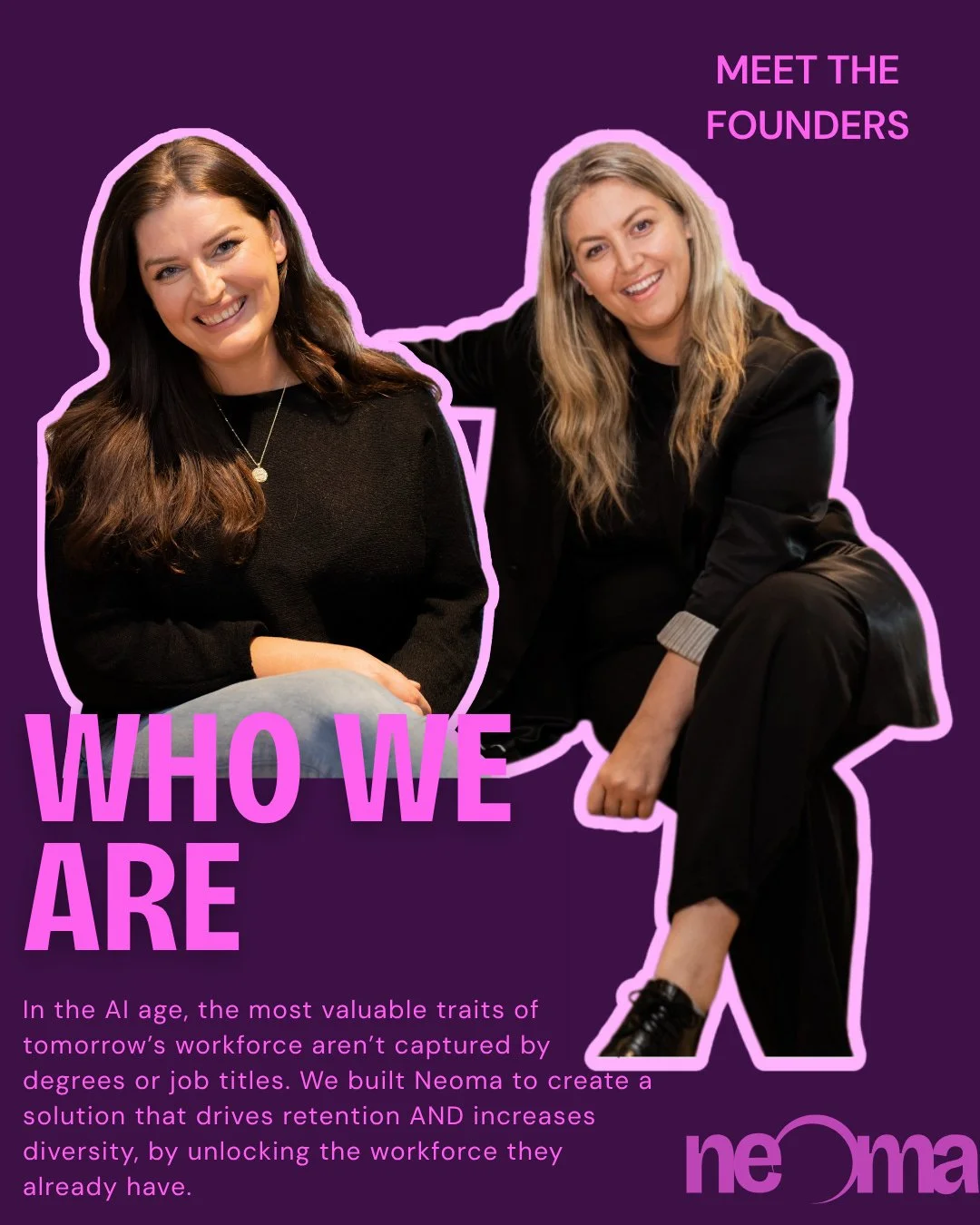Why Neoma? Why now?
Gemma:
I worked in media and production for about 17 years, and frankly, I was starting to get fed up. The writing was on the wall, print media was dying, and the Daily Mail seemed to be the source of truth - utterly bonkers.
Very keen to future-proof my career, I planned a swift transition to tech sales. (Then I got pregnant, derailed the plan, and got a bit scared about making the switch into the unknown as a single mum).
So, I returned from maternity leave, inching closer to tech by working in marketing and comms for some of the world’s most recognisable tech brands.
The whole time I knew, I really wanted to be back in B2B sales. But every time I tried to make the move, I hit the same wall. I didn’t have SaaS experience. I hadn’t ‘carried a quota.’
Never mind the 15+ years I’d spent building client relationships, pitching big ideas, and navigating high-pressure environments. It didn’t matter - the roles all felt like they belonged to some bloody secret society. If you hadn’t come up through the exact right path, you were out.
It was frustrating, and honestly, pretty demoralising. The whole sector is wrapped in buzzwords about ‘transferable skills’ and ‘potential over pedigree’ (that’s one of ours, I’m claiming it), but when it came down to it, companies still defaulted to the same cookie-cutter candidates (and spoiler alert, they were mainly men).
That’s what lit the fire for Neoma.
Because I knew the talent was out there - I was the freaking talent! And I knew I wasn’t alone. Smart, capable people who’d thrived in one world but were being shut out of the next, just because they didn’t speak the right jargon or come from SaaS 101.
Why now? Because exclusion is still baked into the system, and the stakes are only getting higher with AI and automation reshaping everything.
Why Neoma? Because we’ve built the bridge I needed. A clear, supported, commercial path into tech, not just for people who’ve already arrived, but for those who’ve been knocking on the door for years.
Roisin:
I never saw myself working in tech, let alone running a tech business. I studied pharmacology - in another life, I could’ve spent my days in a lab coat befriending mice. But I found my way into the world of tech talent, and I’ve spent the last ten years in the trenches: seeing who gets in, who thrives, and what holds the industry back.
Day after day, I listened to the challenges people discussed when it came to cultivating a great team.
Ten years is a long time in tech, and despite some particularly chaotic years lately, the problems fundamentally haven’t changed all that much.
From leaders: not enough talent, too expensive, not diverse enough, people don’t stick around long, not enough focus on culture, red tape everywhere.
From candidates: not enough opportunity, no time or support to upskill, skills quickly moving from in-demand to out-of-date, ghost jobs, and layoffs in disguise.
Even without the disruption AI is about to unleash, it’s fair to say that tech hiring is just bloody painful for everyone involved in it - hiring managers, candidates, TA teams, recruiters.
I was especially interested in the challenge around diversity: businesses want diverse talent - so why is the gender gap still so huge, and what would it actually take to change it? That curiosity started me on a long journey around enabling access to digital careers for people from all walks of life, which has been incredibly rewarding, if not without its own challenges! What has become clear to me is that the way to really scale and democratise tech hiring is through the application of skills-based assessments.
Study after study says the same thing: companies that embrace skills-based hiring and take workforce strategy seriously, consistently outperform.
And having built a company that helped hundreds of people transition into tech, I’ve seen the impact first-hand. Careers transformed. Earning potential doubled or tripled. Confidence rebuilt.
Just as importantly, the businesses that got behind it saw incredible results too - faster ramp-up, stronger teams, better retention, lower costs, and more engaged people.
Neoma was built on a simple truth: this work is critical, but it’s not easy. Companies need clarity, capability, and people who can get the work done. That’s where we come in.
Why now? Because the time for pilots, panels, and posturing is over.
Why Neoma? Because we turn intention into impact. Not eventually- now.

